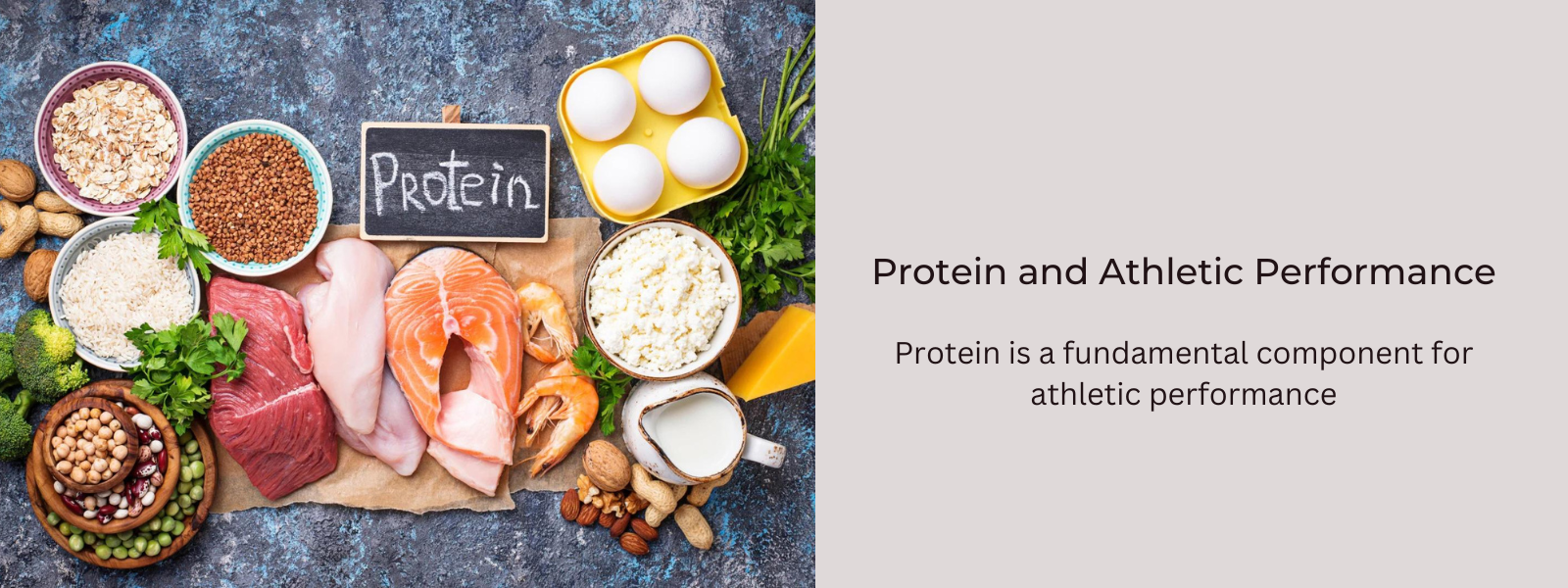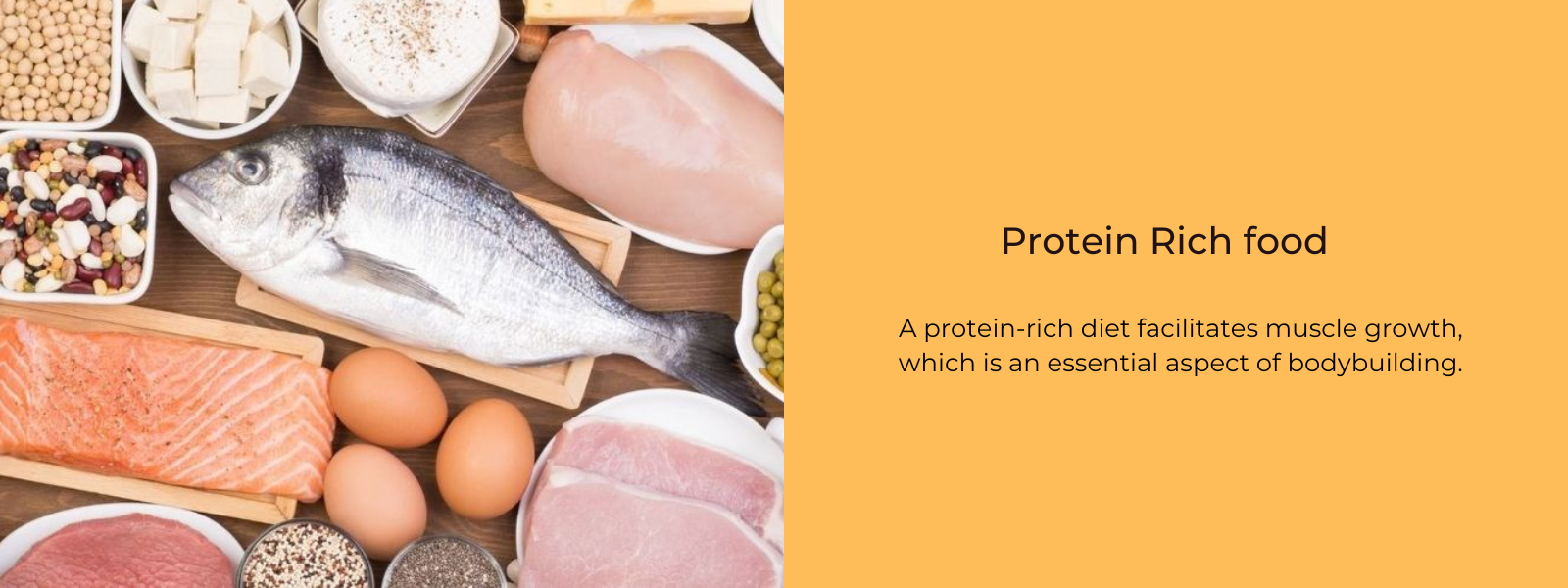A protein-rich breakfast refers to a morning meal that contains a substantial amount of protein, one of the three essential macronutrients alongside carbohydrates and fats. Such a breakfast prioritizes protein sources to provide the body with amino acids, which are the building blocks necessary for various physiological functions, including muscle repair, growth, and maintenance.
A protein-rich breakfast is beneficial for various reasons, including promoting satiety, supporting muscle health, regulating blood sugar levels, and providing sustained energy throughout the day. Athletes, individuals with fitness goals, and those aiming for weight management often prioritize protein-rich breakfasts to meet their specific nutritional needs. The exact protein content in a breakfast can vary based on individual requirements, dietary preferences, and overall health goals.
Table of Contents
What Constitutes Protein-Rich Breakfast?
A protein-rich breakfast typically includes foods that are high in protein, such as:
- Eggs: A versatile source of complete protein, rich in essential amino acids.
- Dairy Products: Milk, yogurt, and cheese offer protein, calcium, and other nutrients.
- Lean Meats: Chicken, turkey, and lean cuts of beef provide high-quality protein with lower fat content.
- Fish: Fatty fish like salmon not only provide protein but also omega-3 fatty acids.
- Plant-Based Proteins: Tofu, tempeh, legumes (beans, lentils), and quinoa are excellent sources for individuals following vegetarian or vegan diets.
- Nuts and Seeds: Almonds, walnuts, chia seeds, and flaxseeds contribute protein, healthy fats, and additional nutrients.
Benefits Of Protein-Rich Breakfast:
- Muscle Protein Synthesis:
- Protein-rich breakfasts provide essential amino acids necessary for muscle protein synthesis. This process helps repair and build muscle tissue, crucial for athletes undergoing training and exercise.
- Satiety and Weight Management:
- Protein has a satiating effect, helping individuals feel fuller for longer periods. This can aid in controlling overall caloric intake, supporting weight management and preventing overeating throughout the day.
- Blood Sugar Regulation:
- Including protein in breakfast can help stabilize blood sugar levels by slowing down the absorption of carbohydrates. This can contribute to sustained energy levels and reduce the likelihood of energy crashes.
- Metabolism Boost:
- The thermic effect of food (TEF) is higher for protein compared to carbohydrates or fats. Consuming protein-rich meals can slightly increase the calories burned during digestion, contributing to overall metabolic activity.
- Nutrient Density:
- Protein-rich breakfasts often contain other essential nutrients, such as vitamins, minerals, and healthy fats. This nutrient density supports overall health and provides a well-rounded start to the day.
- Improved Concentration and Cognitive Function:
- Protein is essential for the production of neurotransmitters, such as dopamine and serotonin, which play a role in mood and cognitive function. A protein-rich breakfast may contribute to improved concentration and mental alertness.
- Preservation of Lean Muscle Mass:
- For athletes and those engaged in regular exercise, a protein-rich breakfast helps preserve lean muscle mass, especially during periods of increased physical activity or when following a calorie-restricted diet.
- Enhanced Athletic Performance:
- Protein is crucial for the repair and growth of muscles, supporting the overall strength and endurance necessary for athletic performance. A protein-rich breakfast provides the necessary fuel for optimal training outcomes.
- Reduction of Cravings:
- Protein has been shown to reduce cravings and the desire for high-calorie, sugary foods. Choosing a protein-rich breakfast may contribute to better food choices throughout the day.
- Post-Exercise Recovery:
- Consuming protein in the morning is particularly important for athletes who train early in the day. It helps kickstart the recovery process by providing the amino acids needed for muscle repair and regeneration.
- Blood Pressure Regulation:
- Some studies suggest that protein intake may contribute to the regulation of blood pressure, promoting cardiovascular health.
- Bone Health:
- Protein is essential for maintaining bone health, and including it in breakfast can contribute to the daily intake necessary for bone density and strength.
Recipe Of Best Protein-Rich Breakfast & Their Benefits:
- Greek Yogurt Parfait:
- Steps:
- In a glass or bowl, layer Greek yogurt with fresh berries.
- Add a handful of granola between each yogurt layer.
- Drizzle honey on top for sweetness and an extra burst of flavor.
- Benefits:
- Greek yogurt is rich in protein, providing essential amino acids for muscle repair and satiety.
- Berries contribute antioxidants and vitamins.
- Granola adds fiber and complex carbohydrates for sustained energy.
- Eggs and Avocado Toast:
- Steps:
- Toast a slice of whole-grain bread.
- Mash half an avocado and spread it on the toast.
- Top with a poached or fried egg.
- Season with salt, pepper, and optional herbs.
- Benefits:
- Eggs are a complete protein source with essential nutrients.
- Avocado provides healthy fats, promoting satiety.
- Whole-grain toast adds fiber for digestive health.
- Protein Smoothie:
- Steps:
- Blend together a scoop of your favorite protein powder, fruits, spinach, almond milk, and a spoonful of nut butter.
- Adjust the consistency with more liquid if needed.
- Benefits:
- Protein powder offers a quick and convenient protein boost.
- Fruits contribute vitamins, antioxidants, and natural sweetness.
- Nut butter adds healthy fats for sustained energy.
- Omelette with Vegetables:
- Steps:
- Whisk eggs in a bowl and season with salt and pepper.
- Sauté a mix of colorful vegetables (bell peppers, tomatoes, spinach) in olive oil.
- Pour the eggs over the vegetables and cook until set.
- Benefits:
- Eggs provide high-quality protein and essential amino acids.
- Vegetables add fiber, vitamins, and minerals.
- Olive oil contributes healthy fats.
- Cottage Cheese Bowl:
- Steps:
- Combine cottage cheese with sliced fruits (pineapple, peaches).
- Top with a handful of nuts (almonds, walnuts) and a sprinkle of chia seeds.
- Benefits:
- Cottage cheese is a rich source of protein and calcium.
- Fruits add natural sweetness and vitamins.
- Nuts provide healthy fats and crunch.
- Quinoa Breakfast Bowl:
- Steps:
- Cook quinoa according to package instructions.
- Top with Greek yogurt, sliced banana, and a handful of nuts.
- Benefits:
- Quinoa is a complete protein with additional fiber.
- Greek yogurt adds protein and creaminess.
-
Nuts offer healthy fats and texture.
Best Indian Protein-Rich Breakfast Options:
India offers a rich variety of protein-rich breakfast options that are not only delicious but also align with the diverse culinary traditions. Here are some examples along with their benefits:
- Paneer Paratha:
- Ingredients: Whole wheat flour, paneer (cottage cheese), spices.
- Benefits: Paneer is a good source of protein and calcium. Whole wheat flour provides fiber, making it a nutritious and filling breakfast that supports muscle health.
- Moong Dal Chilla:
- Ingredients: Moong dal (split green gram), spices, vegetables.
- Benefits: Moong dal is high in protein and fiber. Chillas are versatile and can be filled with vegetables, enhancing the nutrient content. It's a low-calorie option suitable for weight management.
- Oats Upma:
- Ingredients: Oats, vegetables, spices, and a touch of oil.
- Benefits: Oats are a good source of soluble fiber and provide a moderate amount of protein. This dish is heart-healthy, aids digestion, and offers sustained energy throughout the morning.
- Besan Cheela:
- Ingredients: Besan (chickpea flour), spices, vegetables.
- Benefits: Besan is rich in protein and provides a good dose of essential amino acids. Cheela is quick to prepare, making it a convenient choice for a protein-packed breakfast.
- Sprouts Salad:
- Ingredients: Mixed sprouts, chopped vegetables, spices, and a dash of lemon.
- Benefits: Sprouts are a powerhouse of protein, vitamins, and minerals. This salad is light, easy to digest, and supports overall health and wellness.
- Idli with Sambhar:
- Ingredients: Fermented rice and urad dal batter for idli, lentils, and vegetables for sambhar.
- Benefits: Idli provides a combination of carbohydrates and proteins, and the sambhar adds additional protein along with a mix of essential nutrients. Fermentation enhances nutrient absorption and digestion.
- Poha with Peas and Peanuts:
- Ingredients: Flattened rice (poha), peas, peanuts, and spices.
- Benefits: Poha is a good source of carbohydrates, and peanuts provide protein and healthy fats. This dish is easy to prepare and light on the stomach.
- Daliya (Cracked Wheat) Upma:
- Ingredients: Cracked wheat, vegetables, spices, and a touch of ghee.
- Benefits: Daliya is a whole grain rich in fiber and protein. This upma is a nutritious option for those looking to include more whole grains in their diet.
- Egg Bhurji:
- Ingredients: Eggs, onions, tomatoes, and spices.
- Benefits: Eggs are an excellent source of high-quality protein and essential amino acids. Egg bhurji is a quick and flavorful option for a protein-rich breakfast.
- Soya Upma:
- Ingredients: Soya granules, semolina (rava), vegetables, and spices.










Leave a comment